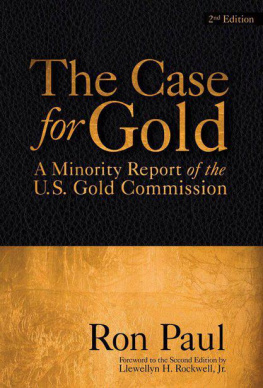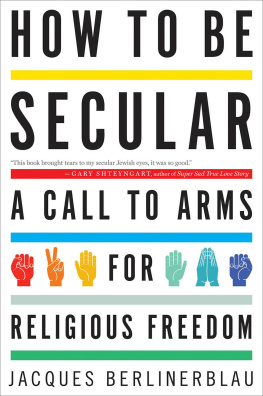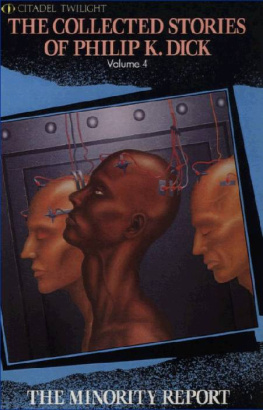Mahmood - Religious difference in the secular age: a minority report
Here you can read online Mahmood - Religious difference in the secular age: a minority report full text of the book (entire story) in english for free. Download pdf and epub, get meaning, cover and reviews about this ebook. City: Princeton;New Jersey, year: 2015, publisher: Princeton University Press, genre: Politics. Description of the work, (preface) as well as reviews are available. Best literature library LitArk.com created for fans of good reading and offers a wide selection of genres:
Romance novel
Science fiction
Adventure
Detective
Science
History
Home and family
Prose
Art
Politics
Computer
Non-fiction
Religion
Business
Children
Humor
Choose a favorite category and find really read worthwhile books. Enjoy immersion in the world of imagination, feel the emotions of the characters or learn something new for yourself, make an fascinating discovery.
Religious difference in the secular age: a minority report: summary, description and annotation
We offer to read an annotation, description, summary or preface (depends on what the author of the book "Religious difference in the secular age: a minority report" wrote himself). If you haven't found the necessary information about the book — write in the comments, we will try to find it.
Mahmood: author's other books
Who wrote Religious difference in the secular age: a minority report? Find out the surname, the name of the author of the book and a list of all author's works by series.
Religious difference in the secular age: a minority report — read online for free the complete book (whole text) full work
Below is the text of the book, divided by pages. System saving the place of the last page read, allows you to conveniently read the book "Religious difference in the secular age: a minority report" online for free, without having to search again every time where you left off. Put a bookmark, and you can go to the page where you finished reading at any time.
Font size:
Interval:
Bookmark:

RELIGIOUS DIFFERENCE IN A SECULAR AGE
RELIGIOUS DIFFERENCE IN A SECULAR AGE
A Minority Report
SABA MAHMOOD
Princeton University Press
Princeton and Oxford
Copyright 2016 by Saba Mahmood
Requests for permission to reproduce material from this work should be sent to Permissions,
Princeton University Press
Published by Princeton University Press, 41 William Street, Princeton, New Jersey 08540
In the United Kingdom: Princeton University Press, 6 Oxford Street, Woodstock, Oxfordshire
OX20 1TW
press.princeton.edu
Cover art: Jamil Naqsh, Painting no. 25, oil on canvas, 30 24 inches. Courtesy of the artist.
All Rights Reserved
Library of Congress Cataloging-in-Publication Data
Mahmood, Saba, [date]
Religious difference in a secular age : a minority report / Saba Mahmood.
pages cm
Includes bibliographical references and index.
ISBN 978-0-691-15327-8 (hardcover : alk. paper)ISBN 978-0-691-15328-5 (pbk. : alk. paper)
1. Religious minoritiesEgypt. 2. Freedom of religionEgypt. 3. SecularismEgypt. I. Title.
BL2460.M34 2015
322.10962dc23 2015013177
British Library Cataloging-in-Publication Data is available
This book has been composed in Minion Pro
Printed on acid-free paper.
Printed in the United States of America
10 9 8 7 6 5 4 3 2 1
For Charles and Nameer
CONTENTS
ACKNOWLEDGMENTS
T his book is based on research supported by the Carnegie Corporations Islamic Scholars award and the Frederick Burkhardt Fellowship from the American Council of Learned Societies. The Burkhardt fellowship allowed me to take on a much more ambitious project than is usually possible for a second book. It afforded me the leisure of a year at the Center for Advanced Study in the Behavioral Sciences (Palo Alto), where I was able to explore scholarly debates in international law, Ottoman history, and minority rights. The American Academy in Berlin hosted me for six months, during which I wrote the bulk of this book on the beautiful premises of the Academy in Wannsee. Finally, a collaborative grant from the Henry R. Luce Initiative on Religion and International Affairs made it possible to engage with scholars from a wide variety of disciplines working on the issue of religious freedom. I especially want to acknowledge Toby Volkman, the director of Policy Initiatives at the Henry Luce Foundation, for her support.
In the course of writing this book I have accrued many personal debts, none of which I can adequately honor in this brief space. I start with my deepest thanks to friends who helped me understand the fraught condition of religious minorities in Egypt. Hossam Bahgat, the intrepid founder of the Egyptian Initiative for Personal Rights (EIPR), welcomed me into his organization and spent hours discussing the intricacies of his work with me. If not for him, and the gracious staff of the EIPR, this book would not have been born. I am grateful to Adel Ramadan for his patience and eloquence in explaining the ins and outs of Egyptian law to me, and to Yara Sallamwho is in prison as I write these linesfor her courage, care, and radiant smile. May you soon be free. I thank Magdi Guirguis for his invaluable insights into Coptic history. I also want to acknowledge Baha Mohamed, Muhammed Rajab, Nafissa Dessouky, Naseem Hashim, and Maikel Nabil for the research assistance they provided in Egypt. If not for the friendship and hospitality of Lamis al-Nakkash and Saif Eldin Hamdan, I could never have made Cairo my home; thank you for always being there.
The distance between research and writing is considerable; it requires conversations with friends and colleagues who push you to answer tough questions and explain what you assume to be obvious. I want to start by thanking Joan W. Scott, who not only read all the chapters at an early stage but also encouraged me to gather up the various threads of my argument and knit them together into one chapter, which now constitutes the introduction. If not for Joans confidence in the project, I might have told this story differently. Wendy Brown read the entire manuscript before it went to the press and gave me invaluable suggestions for sharpening each turn of the argument. I am deeply grateful for this act of generosity. I want to thank Webb Keane for reviewing the book for Princeton University Press and for his meticulous comments on the manuscript. I am grateful to Samera Esmeir for her faith in the project and, despite her busy schedule, making time to read several chapters. A warm thanks to Judith Butler for reading the final version of my introduction with her customary wit and insight.
This book owes a huge intellectual debt to Talal Asad for opening up the questions that are at the center of this book. Talal also extended me his characteristic generosity and commented on the entire manuscript, pushing me to delve deeper into things that I had only hastily touched upon. I hope I was able to do justice to his instigations. This book has benefited enormously from conversations with Hussein Agrama, who has been thinking about these issues in relation to Talals work for as long as I have. Many of the problems he writes about also animate Religious Difference in a Secular Age. I am immensely grateful for his deep engagement with this book, in particular his sharp comments on the political nuances of my argument that were, at times, unclear to me.
I want to thank Michael Gasper, Bruce Masters, and Wilson Chacko Jacob for reading the first two chapters and making sure that I did justice to the wide swath of historical material I discuss in this book. I am indebted to Aaron Jakes for sharing his archival savvy and introducing me to the 1923 constitutional records that became the basis of the second chapter. Thanks to Khaled Fahmy for his support while I was in Cairo, and to Kenneth Cuno for answering my initial queries about family law. To Sinan Antoon I owe a note of thanks for sitting down with me in Berlin to work through the gyrating prose of Egyptian constitutional debates while keeping us both smiling. Thanks to Ussama Makdisi for sharing his thoughts on Ottoman history and sectarianism. I am grateful to Michael Allan for convincing me to write on the novel Azazeel; much of what is in this chapter draws upon years of conversations with Mike and on his important work on literature and secularity. The chapter on family law benefited from conversations with Judith Surkis and her work on the topic in France. I would like to thank Peter Danchin for cowriting the article that became the basis of and for insightful discussions on the connections between the Bahai court rulings and international law. Finally, I would like to acknowledge Iftikhar Dadis help in procuring the artwork for the cover of this book.
I am blessed to have an extraordinary set of friends who keep me invested in life and thinking. I want to thank Raka Ray for her immeasurable care that lightens up my spirits in ways that are hard to define. Whenever I have faltered, she has always been there. To Cori Hayden I owe my gratitude for her friendship and her presence in the corridors of Kroeber and Stinson. Jane Collier, a mentor and a friend, has always read my work with care and erudition; I remain indebted to her in more ways than one. My thanks to Anjali Arondekar, Colleen Lye, and Stephen Best for pushing me out of my anthropological habitus to think with them; and to David Goldberg for keeping matters on the edge. Ashok Bardhan, I owe you a debt for the skepticism you always inject into our conversations. Thanks to Mayanthi Fernando for not escaping to New York; to Behnaz Raufi for her laughter and care; and to Donald Moore and Jake Kosek for their unfailing camaraderie. And a warm thanks to Munis Faruqui, who has given me the invaluable gift of a pathway to the past:
Next pageFont size:
Interval:
Bookmark:
Similar books «Religious difference in the secular age: a minority report»
Look at similar books to Religious difference in the secular age: a minority report. We have selected literature similar in name and meaning in the hope of providing readers with more options to find new, interesting, not yet read works.
Discussion, reviews of the book Religious difference in the secular age: a minority report and just readers' own opinions. Leave your comments, write what you think about the work, its meaning or the main characters. Specify what exactly you liked and what you didn't like, and why you think so.

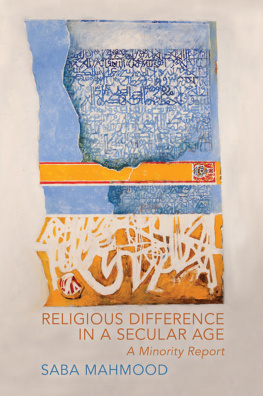


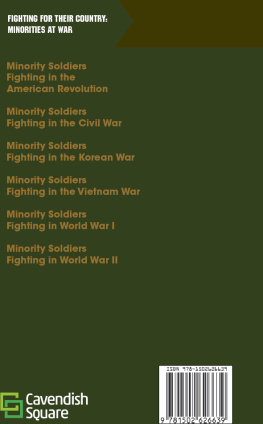
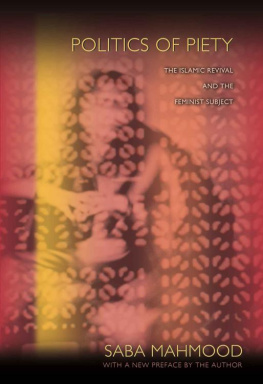
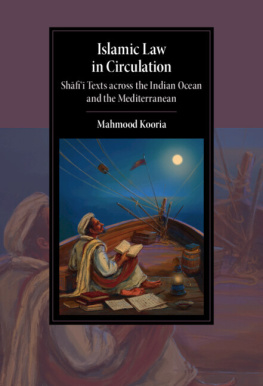
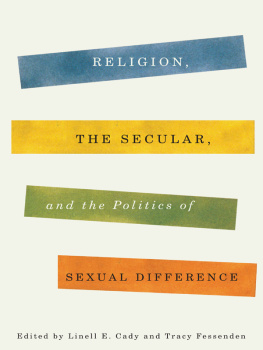
![Blackford - Freedom of religion [and] the secular state](/uploads/posts/book/167779/thumbs/blackford-freedom-of-religion-and-the-secular.jpg)
